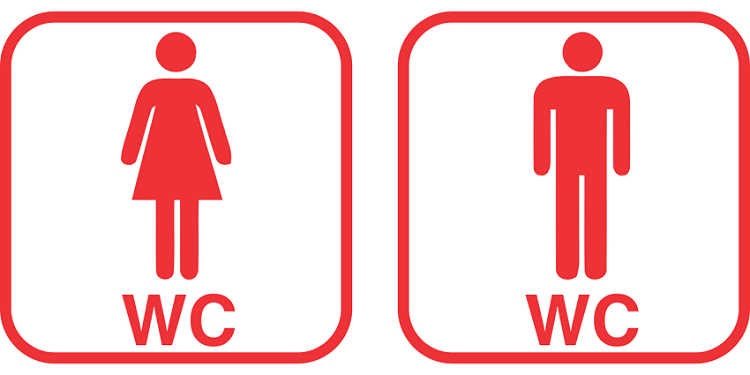
In the UK, we have the benefit of having an effective and efficient waste system. Unlike some other, less developed countries, the Victorians made great strides to ensure that sanitation was improved. Many of the sewers in London today are the same as those built in Victorian times, but this has led to some people taking this system for granted.
There has been a lot of advice over the past few years, encouraging both businesses and domestic properties to only flush what they call the three P's - Pee, Poo and Paper. This is because there has been an increasing number of incidents of un-flushable items ending up blocking sewers such as the famous ‘fatbergs’.
As a business, it is important to know what you can and cannot flush down the toilet and sinks, because there have been a number of companies fined for allowing FOG (Fat, Oil, Grease) to enter the wastewater system. However, it is important that domestic premises also follow these rules to avoid any potential problems with the water supply and do their bit to prevent fatbergs from forming.
Here is a list of the top 10 tempting things to flush that you know you shouldn’t.
-
Wet wipes, paper towels, tissues
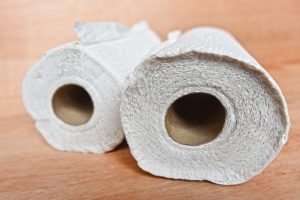
Another major issue for sewers and sewerage treatment plants is wet wipes and other paper products other than toilet tissue. The problem with these products is that they often contain amounts of plastic which don’t dissolve properly. These include wet toilet wipes that claim they are flushable.
It is important that nothing apart from toilet paper is used in the toilets, and that paper towels for drying hands has a separate rubbish bin for people to use. It can also help to have signs placed on the walls reminding people not to throw paper towels in the toilets.
-
Sanitary wear
One of the biggest issues for the physical plumbing structure in buildings is sanitary wear. These products are designed to absorb and swell and this then leads to them blocking the pipework running from the toilets to the outside sewers.
For businesses, the provision of sanitary bins in toilets will help to eliminate this issue. For domestic properties, women should be encouraged to wrap used sanitary products in paper and then place them in a bag and put in it the household refuse.
-
Cotton buds
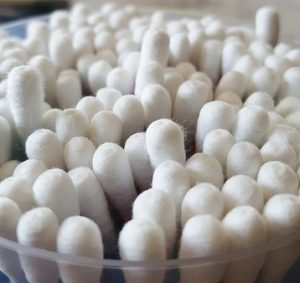
Cotton buds are often used when applying makeup or for cleaning out ears. These have in the past, been made from a thin plastic stem, with cotton wool on each end. Although more companies are now switching to paper stems, they are still not easily broken down in the water. Another concern is that they can get lodged in the sink U bend and cause a blockage.
To avoid these from entering the sewers, they should be placed in the refuse after use, even if using the paper stem variety.
-
FOG down the sink
FOG, or Fat, Oil and Grease, is a huge problem in sewers around the country, but can also be a big concern for businesses. Under the UK Water Industry Act 1991, and the Building Regulations Part H (Drainage and Waste Disposal) 2002, companies have a responsibility to ensure that a suitable grease trap is installed and maintained.
Water companies have the ability to seek compensation from companies for issues relating to fat, oil and grease if they can prove the contaminants came from their business. It’s vital for foodservice businesses to install grease traps that will prevent any fats or oils from entering the wastewater system.
Fat should be scrapped into a refuse bin, or recycled according to local regulations. Oils can often be recycled, so the local authority should have details of the process that is needed.
-
Coffee grounds down the sink
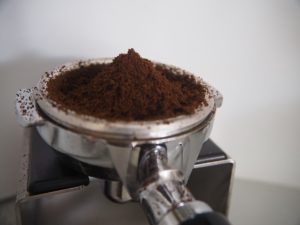
Coffee grounds might look like something that will cause no issues if emptied down the sink, however, this is not the case. Unlike other foods, coffee grounds expand and absorb in water which can clog the smaller pipes in the sink.
To avoid this, it is essential that coffee grounds are emptied into the refuse, or into a compost bin.
-
Condoms
Condoms, both new and used are designed to be resistant to tearing and damage. This means they are often made from latex and other materials that do not break down. Flushing these down the toilet can not only cause an environmental problem, but they can also fill with water and other debris and block sewers and wastewater pipes.
Condoms should always be disposed of in the refuse the same as sanitary products.
-
Cigarette butts
Although there is now a ban on smoking in public places, there is still a real risk of 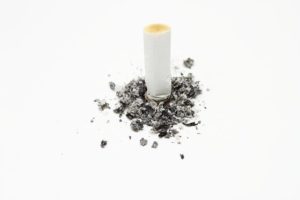
There should be a cigarette bin located outside where smokers are allowed to smoke. For domestic properties, butts should be placed in sand and then thrown out with the refuse.
-
Chewing gum
As you might imagine, chewing gum is incredibly sticky, even when it’s in water. This means that it can get stuck inside pipes and collect other debris and block the flow of water.
Having strainers in urinals and in the sinks will prevent gum from entering the water pipes. It is also important for workers and people in domestic homes to put used gum in the refuse.
-
Prescription or illegal drugs
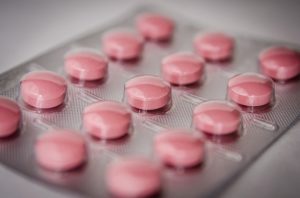
Medication is often disposed of in the sink or in the toilet, as people think that it will disperse and not cause any problems. However, although the medication may well dissolve, the chemicals will not, and can cause serious environmental damage to wildlife and fish.
Medication and other drugs should always be disposed of responsibly by taking them to a local pharmacy.
-
Goldfish
Flushing a fish down the toilet is never acceptable, whether dead and especially if alive. If still alive, the fish will likely go into shock and the chemicals used in the water treatment process will also be toxic to the fish.
Live fish can be sold to other people or donated to a school, or even humanely euthanised by a vet. Dead fish can cause just as many issues, so instead of flushing them, they should be placed in the refuse or buried in the garden.
Whether you are running a business, or in a domestic property, the things that go down the sink or the toilet can have a huge impact on the environment and on the infrastructure. Remember to act responsibly and only flush the three Ps, and nothing else.

Leave a Comment
Your email address will not be published. Required fields are marked *